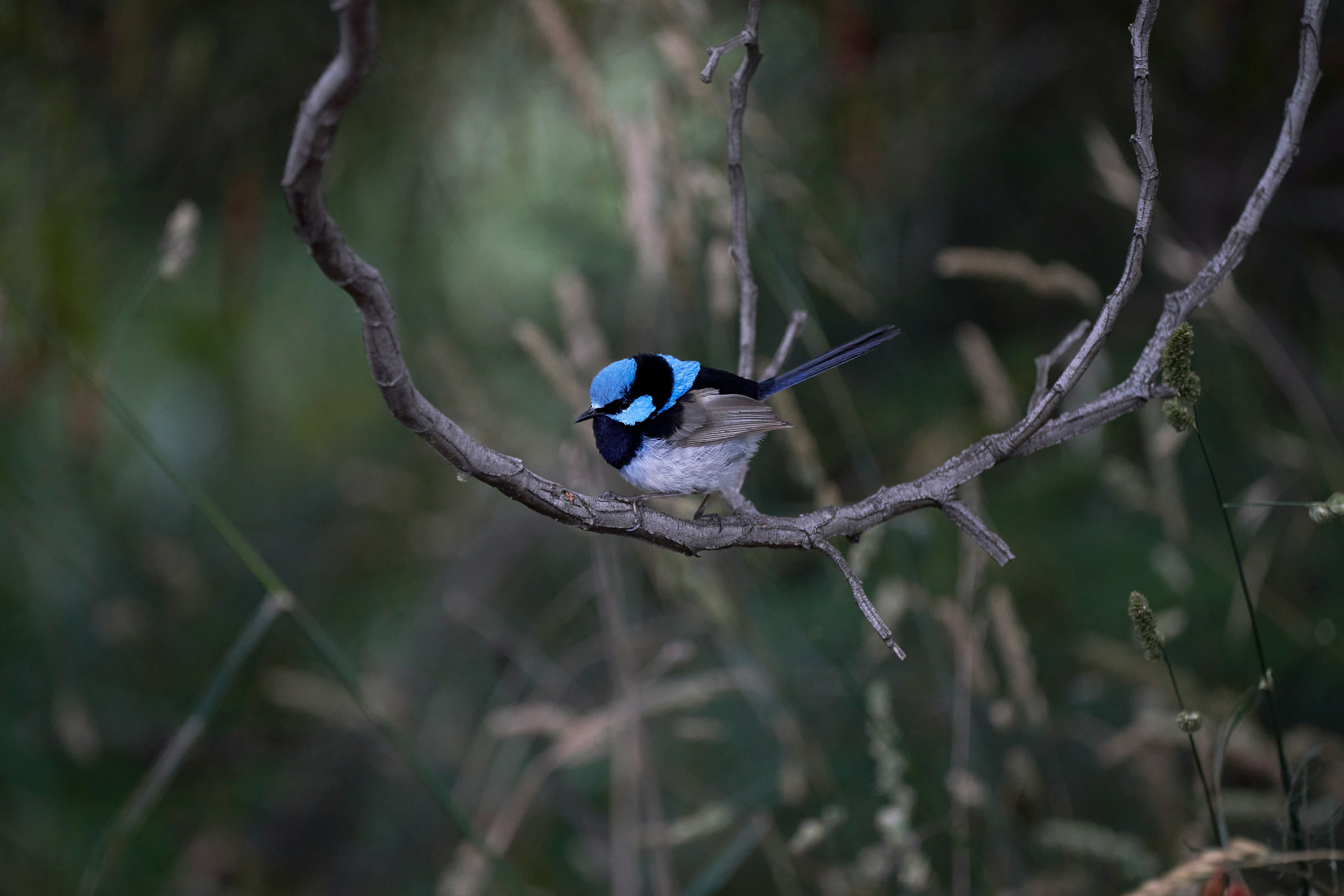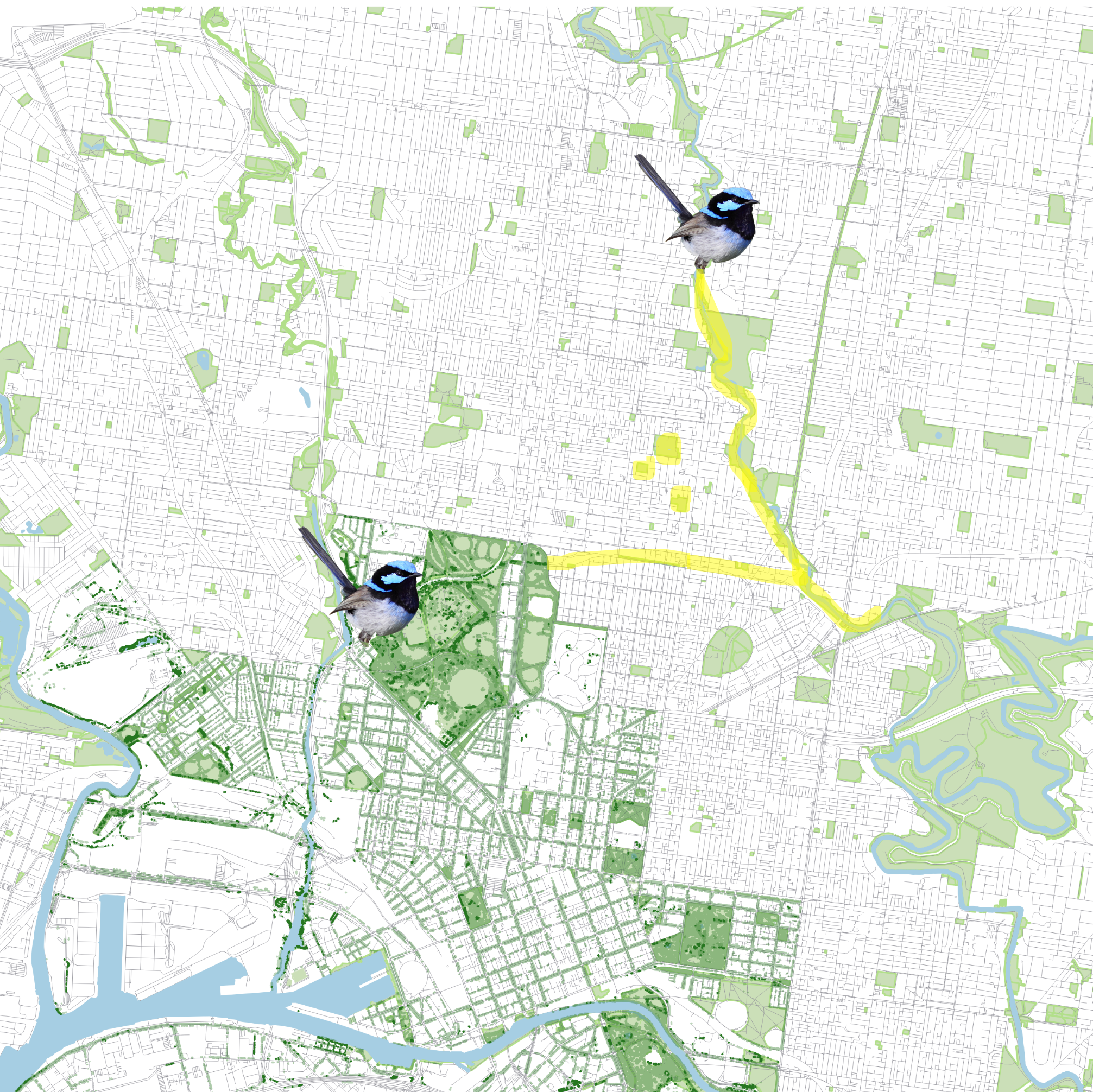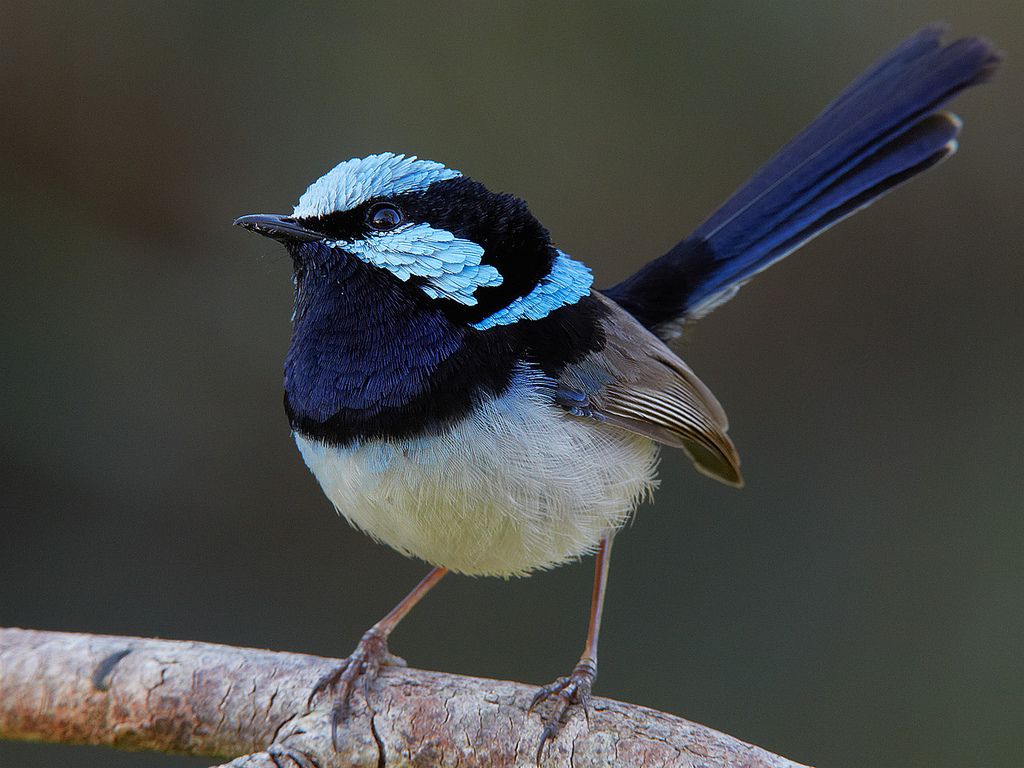Urban nature project to take flight with small grant funding

Future Earth Australia is pleased to profile the awarded projects of its inaugural Opportunities Fund – Creating Opportunities Grant. Superb City Wrens is one of four 2023-2024 Creating Opportunities Grant recipients of $5,000.
--
A citizen science project is setting out to increase Superb Fairy-wren habitats in Melbourne by informing the government’s revegetation strategy. You might recognise Superb Fairy-wren (Malurus cyaneus) males by their bright blue plumage. This charismatic bird species is native to South-East Australia, with some populations currently under threat by urbanisation.
Since 2021, a transdisciplinary project team has been tracking the presence of this tiny but important woodland creature across the City of Melbourne.
Superb City Wrens (SCW) is a collaborative research project between the City of Melbourne, BirdLife Australia, RMIT University, and the University of Melbourne. It aims to understand bird behaviour, movement and habitat use following the City’s strategic urban revegetation.
Early Career recipient Dr Holly Kirk (RMIT University) says the Creating Opportunities Grant is a chance to formalise the success of the pilot program, which has been a labour of love for the primarily-volunteer project team.
“[Our aim is] To try and better plan where to plant new vegetation, to make sure that they’re targeting places that are going to have the best positive impact on nature.” Kirk said.
Melburnians have been asked to track Superb Fairy-wren sightings as part of Superb City Wren’s joint citizen-science venture. Citizen scientists, affectionately known as ‘Wren Watchers’, play a vital role in reporting wren sighting locations through the Atlas of Living Australia’s BioCollect portal. To date, Wren Watchers have over 950 online members, submitted 553 surveys, 377 Superb Fairy-wren sightings, and 56 re-sightings.

“Citizen scientists collecting information for us about where they don’t see Fairy-wrens is also important, because that helps us to understand which areas of the urban landscape need to be made better for this species.” Kirk said.
Superb Fairy-wrens are well adjusted to cities, they depend on dense shrubs in parks for shelter from predators and a nesting site. Urbanisation has reduced the availability of this habitat, and increased how fragmented the habitat is.
In recent years, the City of Melbourne has embarked on a range of revegetation work, restoring natural habitats across the local government area as part of its Nature in the City Strategy. This will hopefully boost native wildlife in the revegetated habitats, including the Superb Fairy-wren.
Kirk and her team thought it was a great time to track the influence of this revegetation on the popular woodland creatures which play an important role in the wider urban ecosystem.
Kirk said that Fairy-wren friendly habitat is vital for other living animals, from woodland birds to bees and butterflies. “If we get Superb Fairy-wrens, then that means we’ve got a pretty healthy ecosystem.”

The project utilises the benefit of natural spaces for both humans and animals to promote urban revegetation.
“It’s a fantastic opportunity at the moment, so many local governments in Australia are striving to create urban landscapes that are better for nature, because there’s a recognition that those landscapes are better for people as well.” said Kirk.
Although, much research needs to be done for successful implementation. This is what Superb City Wrens aim to address.
“Many local governments are working hard to make urban areas better for people and nature...but they’re doing this in a vacuum of knowledge. They can only take what we know about how species behave in natural habitats and apply that in this anthropogenic ecosystem.”
Superb City Wrens is a unique transdisciplinary project that intersects the environment, people, cities and nature to try and create strong ecosystem and wildlife health in urban spaces.
The project is equally directed by a representative of each organisation, who are all women with backgrounds in STEM. Kirk highlights this as a particularly positive attribute, and a source of pride for the team.
“I also think it’s really nice to have these situations where we looked around the room and say, wait a minute, this is awesome! We’re getting it done as a team of women, and the whole ethos of our working group is open and welcoming and not competitive. It’s one of the best project teams I’ve worked in.”
Superb City Wrens hopes to contribute to the wider push amongst local governments to increase revegetation and natural space conservation in cities, in turn preserving Australia’s iconic little blue bird.
--
Future Earth Australia thanks Dr Holly Kirk for her wonderful interview. We look forward to supporting Superb City Wrens into the future and with the Creating Opportunities Grant.
The Opportunities Fund would not be possible without the support of Granders Trust.
Find out more here.